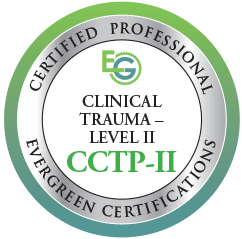Contact Info
Serving Marin County, the North Bay and all of California
415.785.4202
Design & Consultation: GrowYourTherapyPractice *
Serving all California residents.
Trauma & Health
Research has shown that many chronic illnesses either stress-induced or trauma-related, or both (1). So, if you have tried everything that traditional medicine has to offer for a chronic health condition and did not find the relief you were hoping for, it makes sense to look outside-the-box for additional help. In this regard, Internal Family Systems (IFS) and other mindfulness-based practices offers promising benefits.
In the (IFS) model, our personality is viewed as being made up of many sub-personalities, or "parts" (2). If the parts that hold the effects of trauma are using the body to communicate their need for help, then we can use the IFS method to let those parts know they are not invisible, that you now have a way to hear them, and they don’t have to use the body this way to get your attention. This may sound far-fetched, but it has been proven to be true!
IFS as Evidence-Based
While it is well established that early trauma can contribute to disease later in life (1), newer research has shown that treating the effects of trauma using IFS and other mindfulness-based methods has the potential to alleviate the symptoms of certain chronic diseases (3). One published, peer-reviewed study has shown that when patients with rheumatoid arthritis (a chronic auto-immune disease) were guided to identify and listen to parts related to their symptoms during a 9 month course of IFS therapy, there was a positive effect on body, mind, and spirit that persisted for one year after the therapy ended. These durable effects consisted of subjective reports of:
- Improved general function and well-being
- Reduced pain
- Reduced symptoms of depression
- Improved resilience
- Increased self-compassion
Furthermore, there is empirical evidence that IFS can also produce benefits in patients with PTSD, Addiction, and Depression. These and other studies demonstrate that IFS, as well as other mindfulness methods, offers a promising complementary approach to traditional treatments for chronic illness.
NOTES:
- See the Resource page for references on the ACE study
- For an explanation of "parts" in the Internal Family Systems model, see the "Treatment Approach” tab.
- See the Resource page for IFS research references.
©2023 Copyright | All Rights Reserved | David Campell, MD





